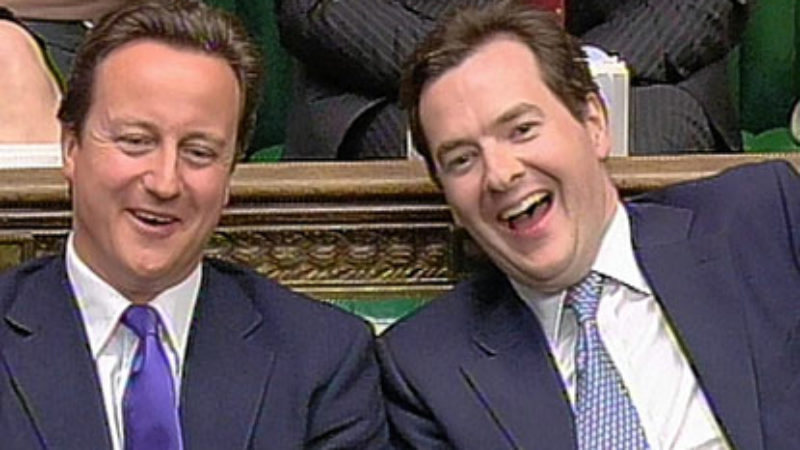
If the two Ed’s are to be characterised as Wallace and Gromit, then I think it only right that we come up with an appropriate moniker for George and Dave. I propose Penn and Teller, as a double act that are almost as adept at giving with one hand while taking with the other.
This may have been the most widely leaked Budget in history. The Commons was unusually subdued during the Chancellor’s statement, as everyone had already heard virtually every single announcement. Even the Brown-esque “save the best for last” flourish of a major acceleration in raising personal income tax allowances failed to generate any real excitement, since it was as predictable as a Ken Clarke snooze.
Things began to liven up once Ed Miliband rose to respond, most notably when he politely invited the Government front bench to raise their hands if they will benefit from the cut in the 50p rate of income tax. It was one of Ed’s best Commons performances to date and played well in the media thereafter.
The political consequences of this Budget will hinge on the public’s reaction to the 50p announcement. Will they be persuaded by Osborne’s boast that the rich will pay five times more as a result of this Budget? He has taken a monumental gamble that they will.
The devil of course will be in the detail. Ed Balls has already taken to the airwaves with his counter-interpretation of the HMRC report which the Chancellor took as his green light to cut the 50p rate.
Balls points out that the report confirms the cost of cutting the top rate will be £3bn next year – the equivalent of giving £10,000 to every top-rate taxpayer. Recouping this rests on the assumption that by cutting the 50p rate, those currently evading or avoiding it will decide to pay up.
It was interesting to hear the Chancellor describe those who evade or aggressively avoid tax as “morally repugnant”. The punishment for morally repugnant behaviour is, apparently, a tax cut which vindicates said behaviour.
And isn’t there a rather contradictory logic in damning the 50p rate for its negative impact on the UK’s competitiveness, whilst simultaneously heralding with great fanfare the fact that the rich will now (allegedly) pay five times as much?
For Labour, this shouldn’t be about being ideologically wedded to the 50p tax rate. Appearing to be so makes it all too easy for opponents to paint the party as anti-wealth and anti-aspiration.
The economic debate over 50p will run and run. But it is the political impact which will have the most telling consequences.
Simon Fitzpatrick works on financial policy at Cicero Consulting .




More from LabourList
Government abandons plans to delay 30 local elections in England
‘The cost of living crisis is still Britain’s defining political challenge’
‘Nurses are finally getting the recognition they deserve’